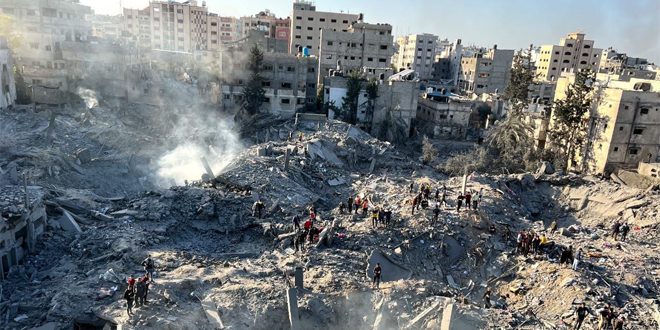Palestine Committee calls for an immediate ceasefire in Gaza and the opening of humanitarian corridors
Tehran (ST) – The participants in the first meeting in of the Palestinian Committee of the Asian Parliamentary Assembly, which was held on Wednesday in the Iranian capital, Tehran, with the participation of Syria, called for an immediate ceasefire in Gaza strip and the opening of new corridors for humanitarian aid.
In a final statement, the participants condemned the Zionist aggression and the direct American partnership in the genocide war committed against the Palestinian people in Gaza and the West Bank.
The statement called for a boycott of the products and goods of the Israeli occupation, stressing the need to adhere to the Geneva conventions related to the protection of the Palestinian civilians. It also called for the full implementation of the conventions, and the release of all Palestinian detainees and prisoners held by the occupying entity.
The statement called on all regional and international organizations and institutions concerned with the protection of women and children to play their role in punishing Israel and its officials for the crimes they committed against the Palestinians and to support the Palestinian National Council in all regional, international and continental parliamentary arrangements and networks.
The statement stressed the necessity to expel the Zionist Knesset from the Inter-Parliamentary Union and its subsidiary bodies.
It indicated the need to support the establishing of a special fund to provide the Palestinians with the necessary financial aid to rebuild what was destroyed by the Zionist entity, and to provide support to Palestinian health institutions.
The statement called for confronting the operations of Judaization and raids on the religious places and recalling UN Resolution No. 3379, which considered “Zionism a form of racism and racial discrimination.”
It also called on the International Criminal Court, to take action regarding war crimes, genocide, and crimes against humanity.
Najla Khoury

